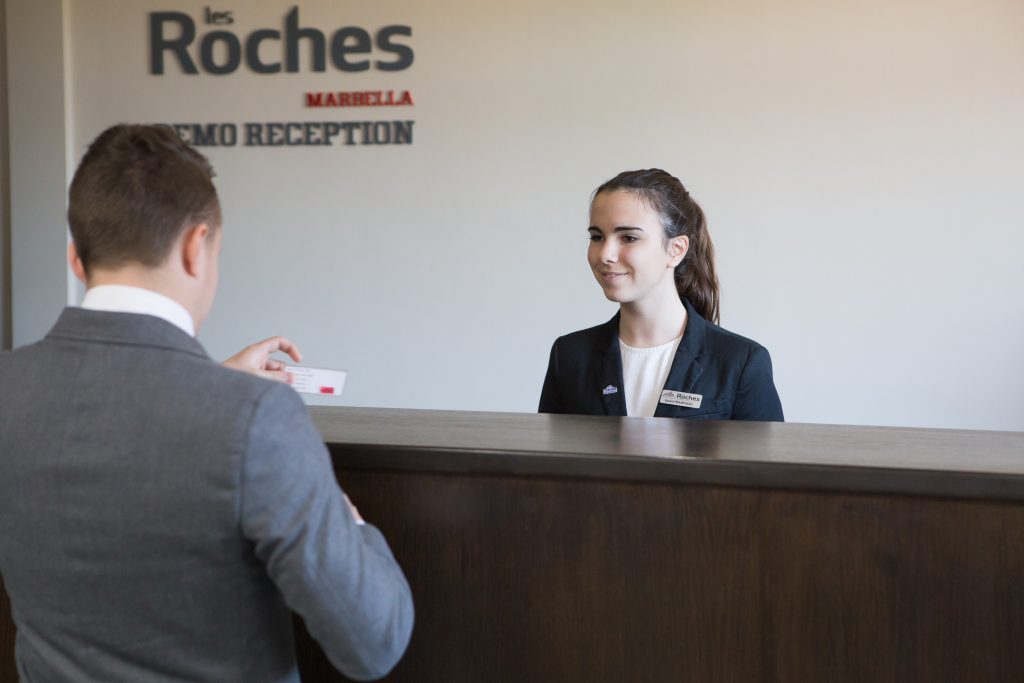
By Rocio Montero, Senior Lecturer in Revenue Management at Les Roches Marbella
The other day I was scrolling through the posts in my LinkedIn profile and I came across this statement: “Offline is the new luxury”, posted by a GM of a well-known resort brand. It is true that, nowadays, disconnection is a luxury that not everybody can afford. This statement made me think of a hotel’s daily operations and what it may represent in terms of revenue management since offline reservations still carry significant weight in a hotel or resort’s total reservations.
It is obvious that the approach of a revenue manager at upscale luxury hotel properties should differ completely from the one adopted in 3 or 4-star hotels. So, when we look at the role of price in luxury hotels, we should forget about the role that it plays in other types. In luxury, price tends to take on a secondary role as there is less price sensitivity in this market segment. The price attached to luxury properties is usually an indicator of quality, exclusivity, excellence or prestigious reputation. Consequently, a lower price may be a cue for uncertainty and suspicion that something is wrong with the property, therefore, this is why a higher price is often taken for granted. The use of luxurious properties goes beyond the utilitarian use of accommodation (Kimes & Ho, 2017), thus the role of the price in the bargaining process with clients cannot be considered in the same way that it is with other hotel types. With this in mind, the bargaining power will rely on the level of customization the hotel can develop in its value proposition.
Customer-Centricity and Revenue Management
When we think about the current revenue management approach, sometimes we find colleagues in the sector who think that it is all about statistics and utilizing good revenue management software. However, from my perspective, this approach is incorrect. We cannot deny the importance of technology and data management (and that is what I explain in my revenue management lessons at Les Roches Marbella), yet human input is still crucial. If we only focus on statistics and software, we miss the most important factor of the sale: the guests’ satisfaction with what they experience in our hotels. A satisfactory experience is imperative for any hotel stay, but in luxury properties, it becomes even more relevant. The clients in this scenario look for something unique, and specially designed for them.

Customization can be done with the help of a CRM and a revenue management system, but without the proper staff, it will not come to reality. Personalization via up-selling, carried out by a well-trained sales or reservation team, will impact your bottom line even more in luxury properties. Indeed, one can imagine a well-trained team using the proper software to do so. There are studies that state that a reservation made through an agent of luxury properties will give you 12% more revenue than a reservation done through the property’s website (Kimes & Ho, 2017), thanks to the up-selling in the personalization process. This a sign of how relevant customer-centricity is for any hotel, and especially in luxury environments.
Thinking Outside The Box
Although in hospitality schools we teach our students how to manage a hotel to reach the best financial results by using the best available tools, we need to ensure that the first thing they learn is that everything is about the client. The client is the center of our operation. If we pose the question, what is being a hotelier? We will receive many answers. Sometimes they will come from different sectors of the hotel operation, from people coming from different educational backgrounds, and with degrees from top hospitality schools, but typically, they forget about the importance of customer-centricity.

Les Roches teaches its students to always put the client first by experiencing what serving a client means as well as at the same time being a client. Students at Les Roches come to really appreciate service personalization as more of an art than a science. To be a good hotel marketer, it is necessary to understand the tourists that come to their destination, to catch their attention, and redirect them to your hospitality product(s). But what identifies them as good hotel managers are their ability to build long-lasting relationships with their clients by making them feel even better than at home. Being a revenue manager in a luxury property means more than simply forecasting statistics and looking at reports coming from revenue management software. It requires a deep knowledge of the clientele to the last detail in order to establish the appropriate up-selling strategy and customized value offer. This is one important way for a top hotelier to achieve high levels of ancillary revenue while at the same time creating a long-lasting loyal relationship that enhances the long term value of the client. In closing, it is important to stress that revenue management goes beyond numbers. A loyal guest can spend up to 46% more than a first-time visitor (Soreson & Adkins, 2014) .
References:
Kimes, S. E., & Ho, J. (2018). Revenue management in luxury hotels. Journal of Revenue & Pricing Management, 17(4), 291–295.
Sorenson, S., & Adkins, A. (2014, July 22). Why Customer Engagement Matters So Much Now. Gallup Business Journal. Retrieved from: https://news.gallup.com/businessjournal/172637/why-customer-engagement-matters.aspx



